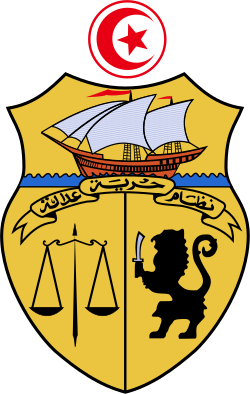This article needs additional citations for verification .(November 2025) |
Ghannouchi II Cabinet | |
|---|---|
| Cabinet of Tunisia | |
 | |
| Date formed | 17 January 2011 |
| Date dissolved | 27 February 2011 (1 month and 10 days) |
| People and organisations | |
| Head of state | Fouad Mebazaa (acting) |
| Head of government | Mohamed Ghannouchi |
| Total no. of members | 38 (incl. Prime Minister) |
| Member parties | RCD, Independents, UGTT (Labour Union), Ettakatol, Ettajdid, PDP, Pirate Party |
| Status in legislature | National unity government |
| History | |
| Election | – |
| Predecessor | Ghannouchi I Cabinet (1999–2011) |
| Successor | Caid Essebsi Cabinet |
 |
|---|
|
| |
During the Tunisian Revolution President Zine El Abidine Ben Ali fled Tunisia on 14 January 2011 Prime Minister Mohamed Ghannouchi then briefly took over as Acting President. On the morning of 15 January 2011 Ghannouchi handed over the presidency to Speaker of the Chamber of Deputies Fouad Mebazaa. This was done after the head of Tunisia's Constitutional Council, Fethi Abdennadher declared that Ghannouchi did not have the right to hold power and confirmed Fouad Mebazaa as acting president under Article 57 of the 1959 Constitution. Ghannouchi, returning to his previous position as prime minister, was confirmed as prime minister by Mebazaa and formed a new national unity government on 17 January 2011 that included members of opposition parties, civil society representatives, and even a blogger who only a week earlier had been imprisoned by the regime of the deposed president. On 27 February 2011 the government was dissolved and replaced by a new government led by Beji Caid Essebsi.